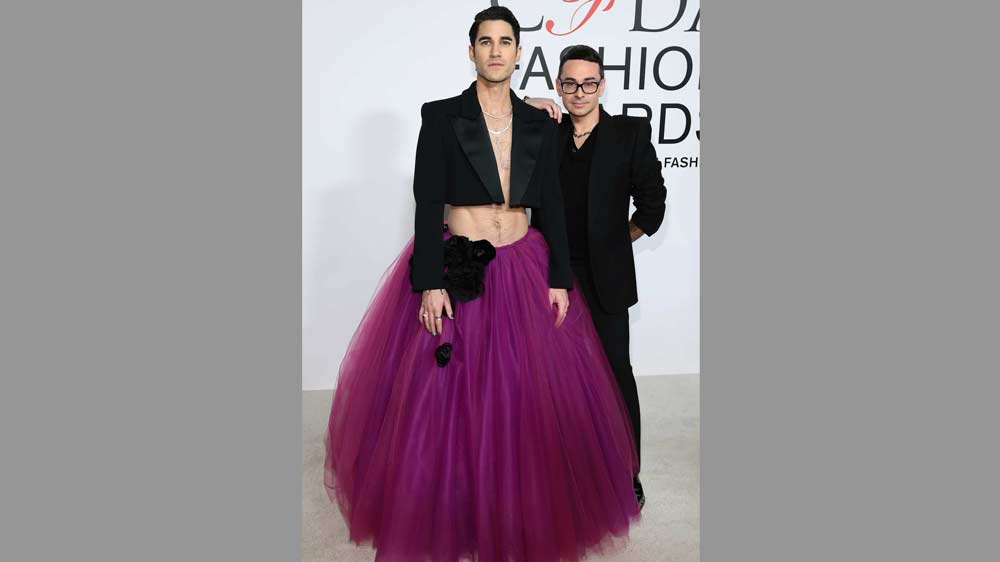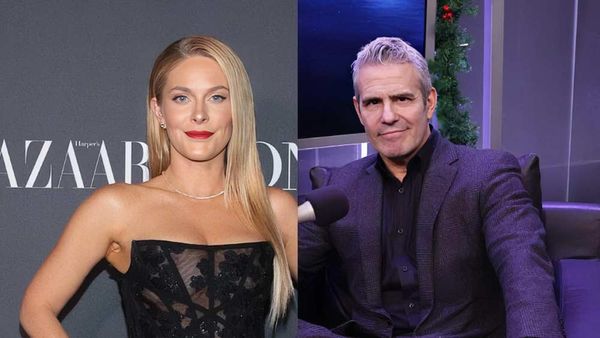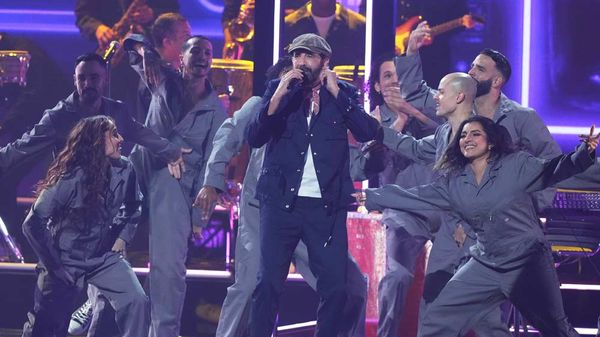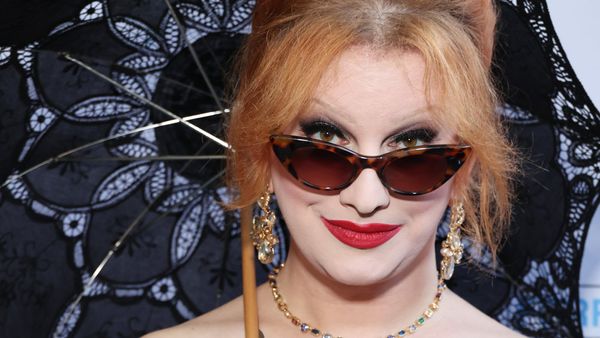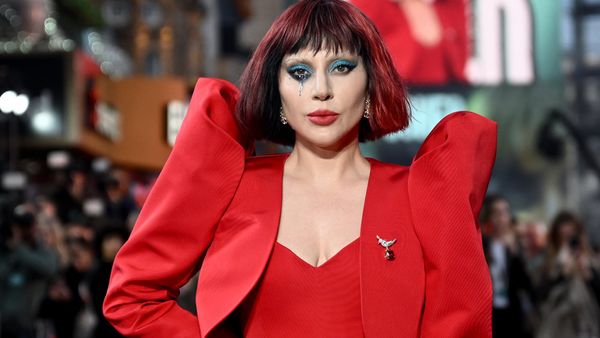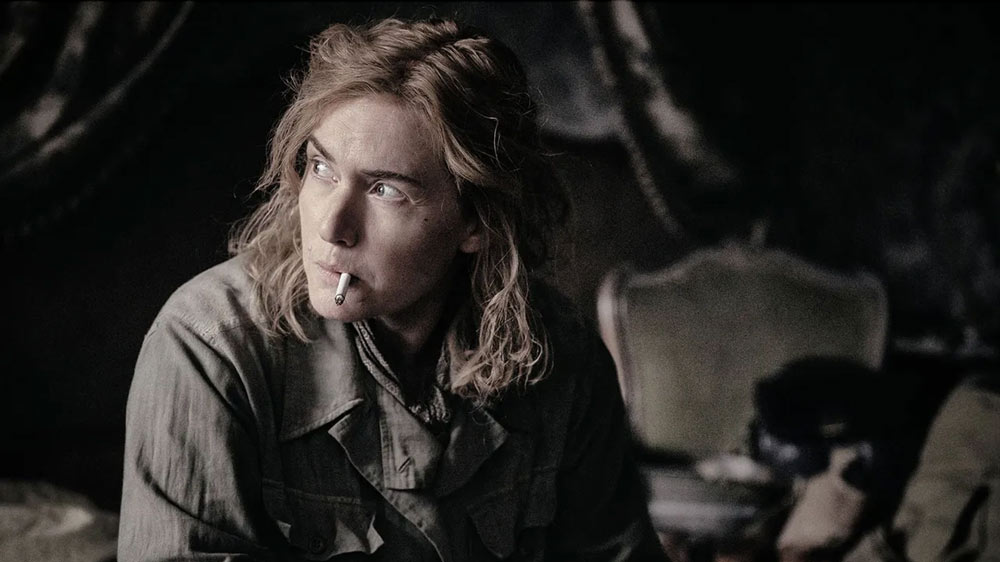
Sep 26
Review: 'Lee' Remembers a Legendary War Photographer but Feels More Scrapbook than Biopic
Kilian Melloy READ TIME: 3 MIN.
Ellen Kuras directs Kate Winslet in a biopic based on the life – more specifically, the wartime work – of legendary photographer Lee Miller, who famously documented the concentration camps where German Nazis exterminated countless lives.
Winslet adopts a brutal American accent and sets aside any precious worries about looking like a starlet for the role of Lee, who was a former model before picking up the camera in a professional capacity. She jokes about her weight and says things like, "I was good at drinking, having sex, and taking pictures, and I did all three as much as I could. Life was fun."
She's speaking to an interviewer (Josh O'Connor) when she lets that line fly, and she's talking about pre-war France, where, in flashback, she frolics with artistic friends in 1938. Attending a rather Bohemian picnic – the women are shirtless and the political talk could seamlessly be transplanted to 2016 or, for that matter, 2024 – she meets a British artist named Roland Penrose (Alexander Skarsgard) and they read each other at a glance. More fun for everyone is how they put their observations into words in assessments that are blunt and yet flirtatious. It's not long before they end up in bed; "I've only known you for four hours," Lee gasps. "Just imagine what I could learn after five," Roland pants in reply. Yes, it's that sort of eagerly heterosexual movie.
But the film doesn't retreat from Lee's pugnacious determination. Once the war starts she's unwilling to let delicate British sensibilities (or American ones, for that matter) prevent her from getting to the war's front lines, where she takes pictures for Vogue (!) and forms a partnership of sorts with a fellow American, Life Magazine photographer David Scherman (Andy Samberg). She also finds it necessary to stand up to the occasional sexist outburst from American GIs, going so far as to pull a knife on one man who doesn't seem to know anything about consent.
The horrors of war are on full display here, as is the squeamishness of censors who hesitated to show readers on the Allied side of things imagery that illustrates those horrors. Lee inhabits the role brilliantly, carrying the brashness and traumas of her youth into a more reflective (though no less starchy) maturity in the scenes where she's regaling her interviewer. Never one to back down, she leans into the young man's questions, saying, "All interviews are interrogations – the good ones, anyway." Who she's talking to, and why she challenges him to pay back her anecdotes in kind, are a surprise best left for the viewing experience.
Kuras creates an immersive mood, but the script – by Liz Hannah and Marion Hume & John Collee, based on the book "The Lives of Lee Miller," by Antony Penrose, Miller's son – errs on the side, perhaps, of adopting Miller's photographic art, showing powerful scenes that stand up well on their own and sear the viewer's eye. What they don't necessarily do, however, is flow into a cohesive narrative; this film feels more like a photo essay than a movie, which might be the point, but it leaves one feeling a little disengaged from the whole, even as individual moments remain indelible.
That's not to say this isn't an important film. At a time when Miller has been name-checked in one of the year's most hard-hitting films – Alex Garland's "Civil War," in which Kirsten Dunst's protagonist is called Lee – and the very evils we once fought are on the rise, any film that reminds us of the moral clarities the Greatest Generation once enjoyed, and shows us what heroism looks like, is a welcome tonic. It doesn't hurt that Lee Miller is such an icon, proving to a younger generation of female viewers (a generation watching their rights, their autonomy, and their very competence come under political and religious attack) that women can be as courageous and committed as men.
"Lee" opens in theaters Sept. 27.
Kilian Melloy serves as EDGE Media Network's Associate Arts Editor and Staff Contributor. His professional memberships include the National Lesbian & Gay Journalists Association, the Boston Online Film Critics Association, The Gay and Lesbian Entertainment Critics Association, and the Boston Theater Critics Association's Elliot Norton Awards Committee.
